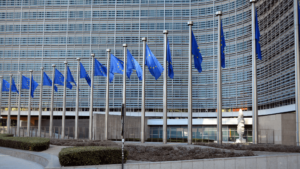Posted on May 9, 2023
The European Year of Skills is an initiative aimed at fostering a culture of lifelong learning and promoting the development of skills among individuals across Europe. Launched by the European Commission, this year-long campaign encourages governments, businesses, educators, and citizens to invest in skills and create opportunities for personal and professional growth.
Why skills matter
Skills are the backbone of any thriving society. They drive economic growth, enhance employability, and empower individuals to adapt to a rapidly changing world. In today’s digital age, where technological advancements reshape industries, upskilling and reskilling have become crucial to meet the demands of the job market. By focusing on skills, Europe can equip its workforce with the necessary tools to thrive in the future economy.
Key objectives of the European Year of Skills
Raising awareness: The European Year of Skills aims to create awareness about the importance of skills development and lifelong learning. By highlighting success stories and showcasing the benefits of skills, the initiative seeks to inspire individuals to invest in their own personal and professional development.
Fostering innovation: Skills development is closely linked to innovation. The European Year of Skills encourages the creation of innovative learning methods, digital platforms, and collaborative initiatives that empower individuals to acquire new skills and knowledge.
Promoting inclusivity: The initiative emphasises the need to ensure equal access to skills development opportunities for all individuals, irrespective of their background, age, or socioeconomic status. By promoting inclusivity, the European Year of Skills seeks to bridge the skills gap and reduce inequalities.
Strengthening partnerships: Collaboration is key to the success of the European Year of Skills. The initiative promotes partnerships between governments, educational institutions, businesses, and civil society organisations to create a holistic and integrated approach to skills development.
How to get involved
The European Year of Skills offers numerous opportunities for individuals, organisations, and communities to actively participate and contribute to the overall goals. Here are some ways to get involved:
Individual commitment: As an individual, you can embrace a lifelong learning mindset and actively seek out opportunities to acquire new skills. Whether through formal education, online courses, workshops, or on-the-job training, every effort counts towards personal growth.
Business engagement: Employers play a crucial role in skills development. By investing in training programs, apprenticeships and upskilling initiatives, businesses can nurture a skilled workforce that contributes to their own success and the overall economic prosperity of Europe.
Educational institutions: Schools, colleges and universities can integrate skills development programmes into their curriculum, ensuring that students are equipped with the skills needed for the job market. Collaboration with businesses and the promotion of practical learning can enhance the employability of graduates, a key pillar of the Digital4Business masters programme.
Government support: Governments can create policies and provide financial support to promote skills development. By fostering an enabling environment, governments can encourage businesses and individuals to invest in lifelong learning and skills acquisition.
The road ahead
The European Year of Skills serves as a catalyst for change, urging individuals, businesses, educational institutions, and governments to collectively invest in skills development. However, the impact of this initiative extends beyond a single year. It lays the foundation for a long-term commitment to skills, shaping the future of Europe’s workforce.
By recognising skills as a vital asset and empowering individuals to continuously upgrade their knowledge and capabilities, Europe can unlock its true potential. The European Year of Skills paves the way for a future where lifelong learning is not just a concept but a way of life, ensuring a prosperous and inclusive Europe.


